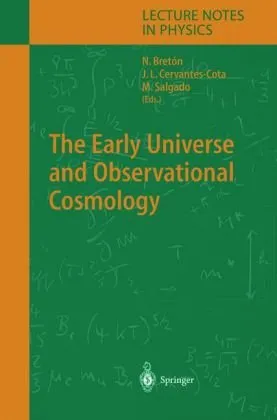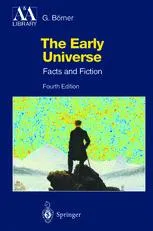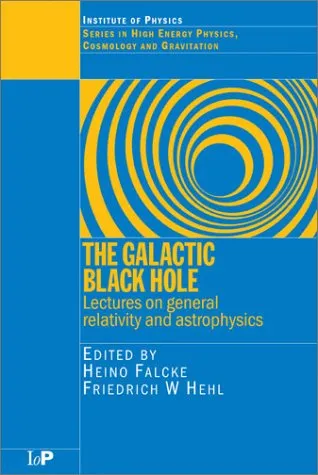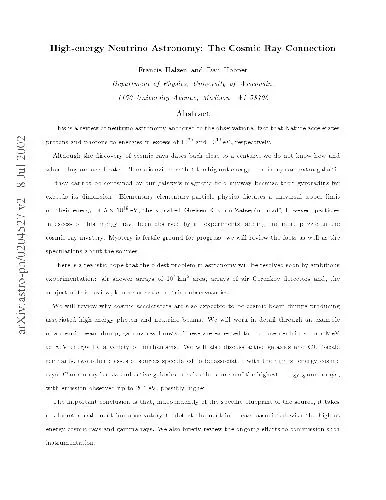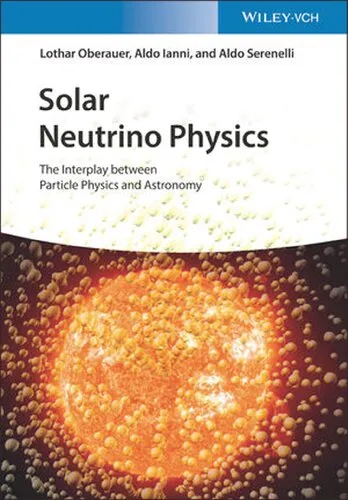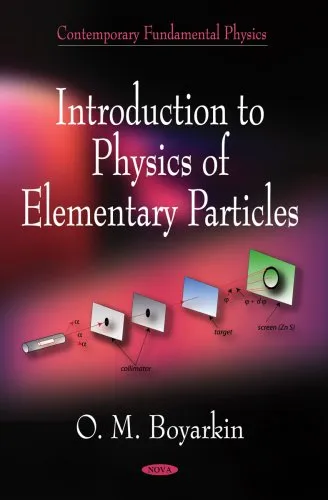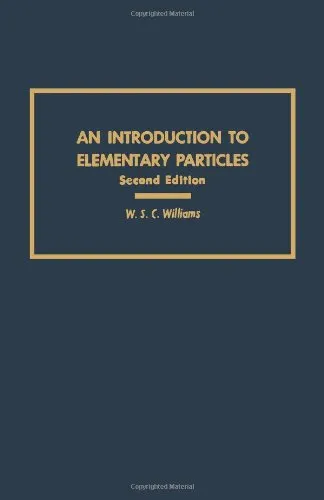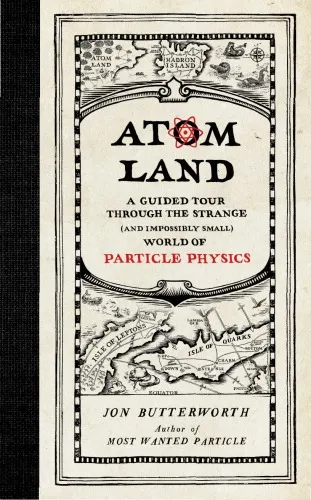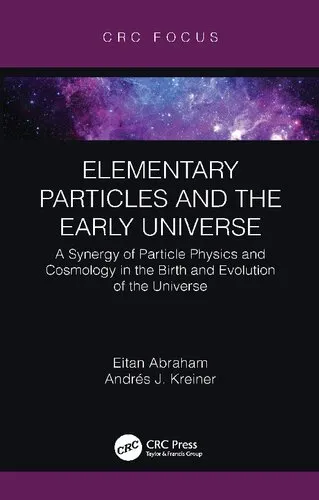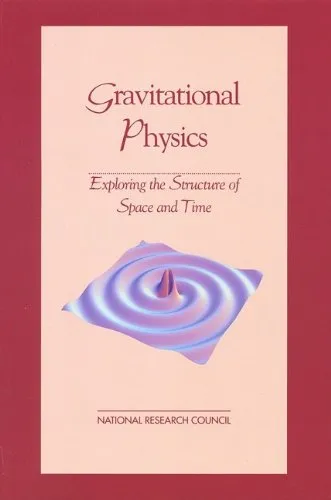The Very Early Universe
3.8
Reviews from our users

You Can Ask your questions from this book's AI after Login
Each download or ask from book AI costs 2 points. To earn more free points, please visit the Points Guide Page and complete some valuable actions.Related Refrences:
Introduction to "The Very Early Universe"
Written by Lukash V.N., "The Very Early Universe" is a profound exploration of the earliest moments after the formation of our universe, delving into the mysteries of cosmic origins, quantum physics, and the intricate interplay of space, time, and energy. This book bridges the gap between modern cosmology and a layperson's curiosity, designed to offer both inspiration and understanding to readers fascinated by the cosmos.
The early universe has always been a topic of fascination, not just for physicists and astronomers but for anyone seeking to unravel the biggest questions about existence. What existed before the Big Bang? How did the universe evolve in those formative microseconds? In this book, Lukash V.N. combines rigorous scientific research with a clear and engaging narrative to address these questions, providing a thorough yet accessible discourse on our universe's enigmatic beginnings.
Detailed Summary of the Book
The book breaks down the complex dynamics of the universe’s earliest moments into captivating, understandable segments.
In its opening chapters, "The Very Early Universe" introduces the reader to the Big Bang theory — not merely as a one-off event but as the beginning of a richly interconnected cosmic history. Concepts like inflationary theory, quantum fluctuations, and symmetry breaking are unraveled in detail, supported by both theoretical insights and observed phenomena. The first phase of cosmic expansion, known as inflation, is explained as the critical phenomenon that triggered the universe's unprecedented growth within fractions of a second.
Subsequent chapters explore the formation of elementary particles, the cosmic microwave background radiation, and the gradual synthesis of the building blocks of matter. The author dives deeply into quantum field theory, the interactions of fundamental forces, and the role of dark matter and dark energy in shaping the universe we observe today.
What makes the book unique is its emphasis on the scientific breakthroughs that laid the groundwork for our understanding of cosmology. Drawing from the works of pioneers such as Stephen Hawking, Roger Penrose, and Alan Guth, Lukash V.N. weaves a narrative that celebrates discovery while also acknowledging the many unresolved questions that keep the field of cosmology exciting.
Additionally, Lukash devotes a significant portion of the book to discussing the philosophical implications of the early universe’s study. The text engages with questions surrounding the emergence of time, the multiverse hypothesis, and the possibility of alternate cosmic histories, offering readers the chance to think critically and broaden their own worldviews.
Key Takeaways
The book is rich in knowledge, offering numerous insights into our universe's formation and evolution. Here are some of the most important takeaways:
- Understanding the Big Bang as the beginning of space and time, not just a localized explosion.
- The critical role of inflation in shaping the observable universe's uniformity and structure.
- Insights into quantum fluctuations as seeds of cosmic structure — galaxies, stars, and ultimately life.
- How the interaction of fundamental forces, such as gravity and electromagnetism, guided the evolution of matter and energy.
- The unresolved puzzles of dark matter, dark energy, and the ultimate fate of the universe.
Famous Quotes from the Book
Throughout the text, Lukash V.N. captures the wonder and mystery of the cosmos with eloquence. Below are a few notable excerpts:
"The early universe was not merely a moment of creation but a symphony of interactions where the seeds of reality were sown."
"In every cosmic particle lies the narrative of eons — stories of birth, transformation, and a future yet to unfold."
"To understand the very early universe is, in essence, to comprehend the origins of everything we hold dear and yet barely grasp."
Why This Book Matters
"The Very Early Universe" stands out as an essential read for those passionate about science, history, and philosophy.
The book not only illuminates the mechanisms underlying the birth of our cosmos but also encourages us to think deeply about our place within it. By spanning both the scientific and philosophical realms, it resonates with audiences across disciplines and levels of expertise, from seasoned physicists to curious readers fascinated by the stars. Its accessible style makes otherwise abstract concepts — such as quantum physics and cosmic inflation — comprehensible and even inspiring.
More importantly, the book challenges its readers to appreciate the fragility and enormity of existence. It highlights the profound interconnectedness of everything in the universe, from the tiniest subatomic particle to the farthest galaxy. In a world that often feels constrained by immediate concerns, "The Very Early Universe" reminds us of the larger picture — our shared origins and our potential to explore the unknown.
Whether you are a scientist, a philosopher, or someone simply curious about how it all began, this book provides you with both the content and the inspiration to continue your exploration of the cosmos.
Free Direct Download
You Can Download this book after Login
Accessing books through legal platforms and public libraries not only supports the rights of authors and publishers but also contributes to the sustainability of reading culture. Before downloading, please take a moment to consider these options.
Find this book on other platforms:
WorldCat helps you find books in libraries worldwide.
See ratings, reviews, and discussions on Goodreads.
Find and buy rare or used books on AbeBooks.
1303
بازدید3.8
امتیاز0
نظر98%
رضایتReviews:
3.8
Based on 0 users review
Questions & Answers
Ask questions about this book or help others by answering
No questions yet. Be the first to ask!
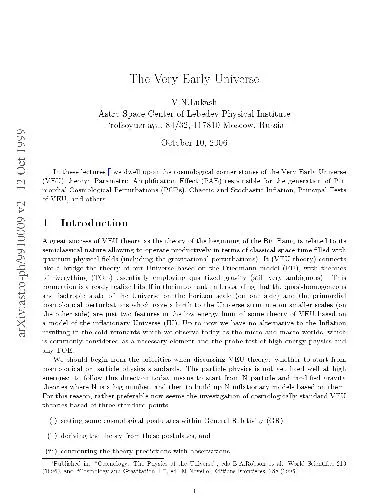


![Quantum physics of atoms, molecules, solids, nuclei, and particles [SOLUTIONS]](https://s3.refhub.ir/images/thumb/Quantum_physics_of_atoms__molecules__solids___16894.webp)
